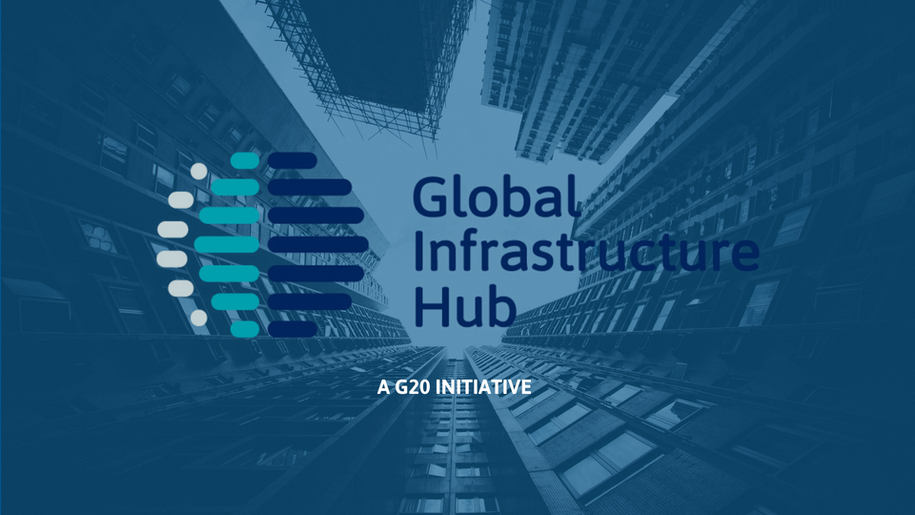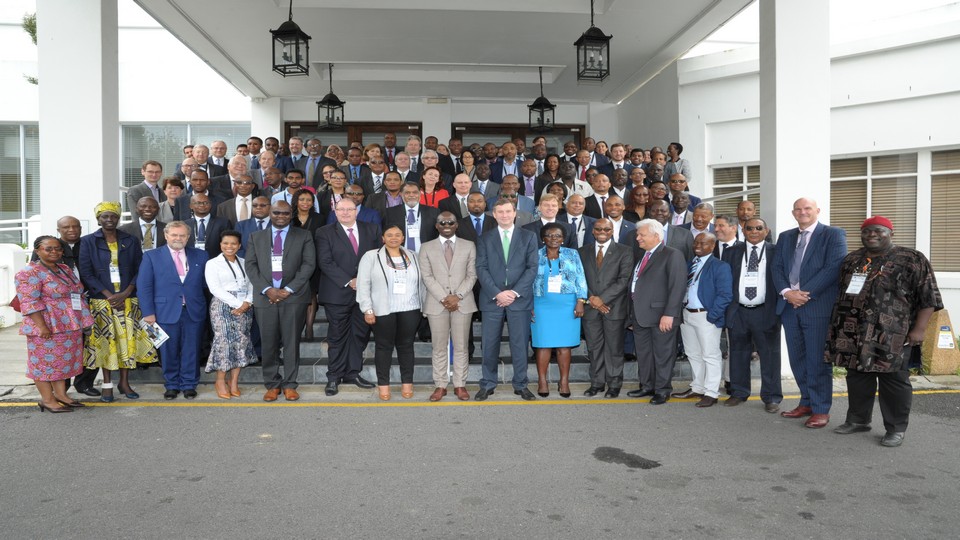198 results found
With a people-centred vision, the Argentine G20 Presidency placed sustainable development at the forefront of the G20 agenda in 2018, under the theme Building consensus for fair and sustainable development .
The GI Hub welcomes the commitment from the G20 Leaders in addressing the infrastructure financing gap and encouraging more private sector investment.
The Financial Stability Board (FSB) have published a consultation report on the Evaluation of the effects of financial regulatory reforms on infrastructure finance.
On 22 July, at their meeting in Buenos Aries, the G20 Finance Ministers and Central Bank Governors voted to renew the mandate of the Global Infrastructure Hub for another four years.
The Global Infrastructure Hub and Turner & Townsend Launch PPP Contract Management Tool. Effective management essential to unlocking value behind infrastructure PPPs.
On 12 July 2018 the GI Hub’s COO, Mark Moseley, joined a webinar panel on blockchain and its applications for infrastructure, hosted by the International Project Finance Association (IPFA). Blockchain is the technology that underpins Bitcoin and other similar ‘cryptoassets’, such as Ethereum and Ripple. Its potential, and the recent volatility of cryptoassets, has made the technology one of the most hyped and misunderstood technologies in the market.
The GI Hub was asked to join a panel discussion on Risk Mitigation in Infrastructure Financing. Mark Moseley, the GI Hub’s Chief Operating Officer, identified the risks which typically arise during major infrastructure projects, including land acquisition risks, demand risks, foreign exchange risks and political risks.
On 3-4 July 2018 the GI Hub gave a series of presentations at the International PPP Finance Summit, held in London.
A new report released today by the Global Infrastructure Hub, a G20 initiative, has revealed an infrastructure investment gap of US$1 trillion in 10 Compact with Africa countries over the next 22 years.
Welcome to the first edition in a series of updates that the GI Hub will provide in advance of each G20 Infrastructure Working Group (IWG) meeting. As committed to in the GI Hub’s Strategic Plan 2019-22, and in response to requests made by members of the IWG, these updates will provide both a description of activities undertaken since the last IWG meeting and a preview of upcoming initiatives. For each of the GI Hub products discussed in the update, we will identify the relationship between the product and the workstreams in the IWG Terms of Reference. We hope that you will find these updates informative and, of course, we welcome any questions or feedback.
In Buenos Aires on 23 March, the G20 Finance Ministers announced that infrastructure would remain a priority for at least the next three years—a very welcome announcement for those in the private sector who have long called for greater global coordination of efforts in this area.
An industry event about the need to attract private capital and develop infrastructure as a standalone asset class is nothing new. However, the G20 Infrastructure Financing Seminar that took place in London last week was unique in that it had the most wide-ranging and intense interactions between governments and the private sector that I have seen to-date.
Over the past few decades, there has been substantial change in living standards globally. Keeping pace with profound economic and demographic changes will require a significant increase in infrastructure investment.
While 2017 was an eventful year for the Global Infrastructure Hub (GI Hub), 2018 is shaping up to be even busier.
A major factor hindering infrastructure implementation and delivery is the absence of good governance, according to the 130 delegates from 27 countries who came together for the first Regional Roundtable on Infrastructure Governance in Cape Town in November.
The Global Infrastructure Hub recently launched its Project Pipeline, a dynamic online platform containing details on government infrastructure projects across the globe. The Pipeline was created by the GI Hub in response to market demand for an early stage global pipeline of projects.






 G20 Communique 22.07.18
G20 Communique 22.07.18















